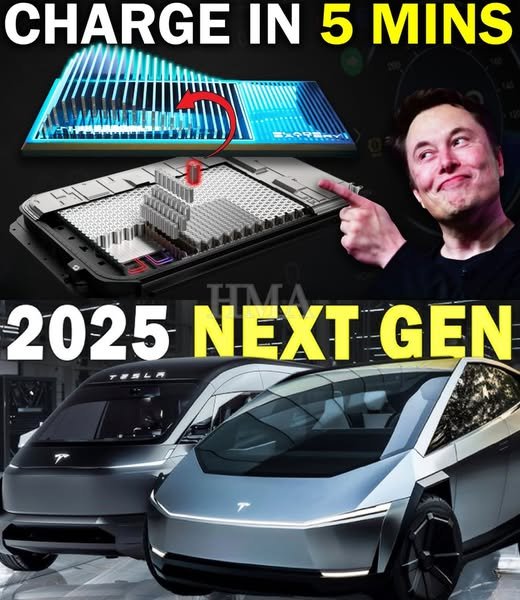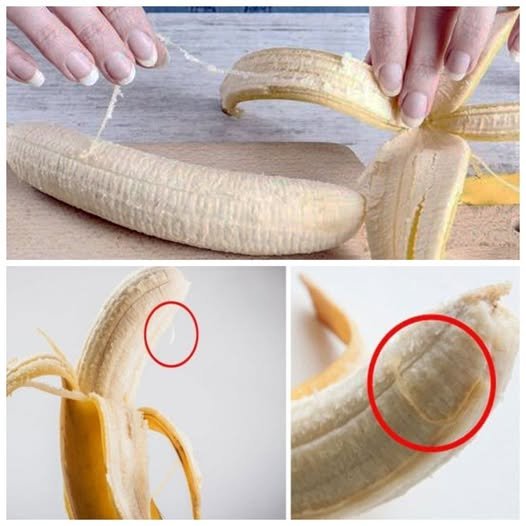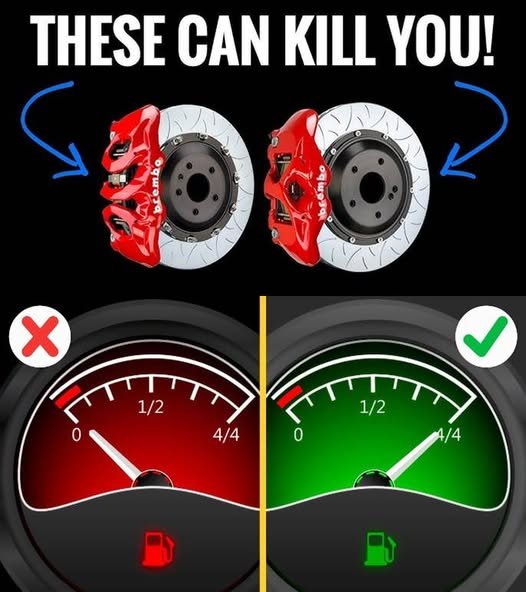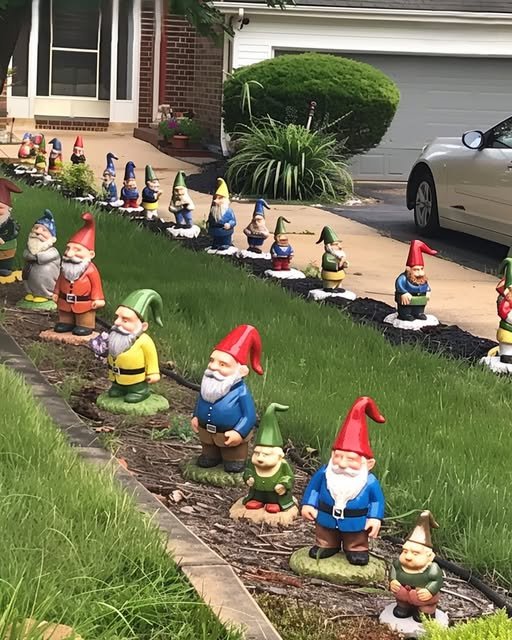In a stunning turn of events, Tesla may have just solved two of the biggest problems in EV history — cost and charging time. With a breakthrough battery technology that charges in just 5 minutes, Elon Musk’s dream of a truly affordable electric car is no longer a fantasy. And if that wasn’t enough, Tesla’s humanoid robot Optimus just got a major update that might reshape future factories — and society itself.
The Battery That Changes Everything: From $25,000 Dreams to Reality
Solid-State? No. Something More Radical.
According to insider leaks and Tesla patent filings, the company is working closely with a new battery chemistry that isn’t traditional lithium-ion or even solid-state. It’s a hybrid lithium-carbon ultrafast-charging cell, potentially co-developed with third-party labs and built at scale in Gigafactory Texas.
- Full Charge Time: ~5 minutes under 300kW+ DC fast charging
- Cycle Life: Over 5,000 full cycles (15–20 years of normal use)
- Cost per kWh: Under $60 (compared to $130–$150 in 2024)
- Cold-Weather Performance: Significantly improved vs LFP
Why This Matters: The $25,000 Tesla Is Back on Track
For years, Elon Musk teased the $25,000 Tesla, also known as the “Model 2” or “Redwood project,” only to delay it due to battery cost, supply chain limits, and margin compression.
Now with this new battery:
- Battery pack cost could drop by 50%
- Tesla can use smaller packs with higher efficiency
- Charging infrastructure pressure is reduced — 5-minute top-ups mean fewer stations, less downtime
This battery isn’t just about cars. It’s about Tesla finally reaching the masses.
Tesla’s $25K Car Is a Robot on Wheels — Literally
What’s fascinating is that the new affordable Tesla will reportedly use the same AI stack and FSD hardware as Optimus — Tesla’s humanoid robot.
This means:
- Full Self-Driving native at launch (with subscription or upfront options)
- No steering wheel or pedals in some versions (post-2027 autonomy targets)
- Shared compute systems with the Tesla Bot, lowering production costs
Tesla’s goal? To make every car not just a vehicle, but a robo-assistant — one that can drive, park itself, and even integrate into your daily AI life.
Optimus Tesla Bot Just Got an Update — And It’s Insanely Fast
The Factory of the Future Is Becoming Autonomous
Tesla’s Optimus robot, first shown stumbling around in 2021, now:
- Walks fluidly
- Sorts and assembles small parts
- Learns tasks via vision and imitation
- Runs on the same Dojo-trained neural net that powers FSD
Recent factory demos in China and Berlin show Optimus:
- Moving tires and heavy loads autonomously
- Working alongside humans with no cage
- Identifying and correcting its own errors
This is not just a warehouse robot. This is Tesla’s future factory workforce. And guess what? It’s the same tech stack used in the new affordable EVs — from sensors to AI.
Charging in 5 Minutes? Here’s How That Works
Tesla’s upcoming V5 Supercharger (unconfirmed but leaked) is rumored to offer:
- Over 600kW charging
- Liquid-cooled cables
- New smart queuing with wireless app syncing
- Grid-buffering with Tesla Megapack integration
Combined with the new battery cell, this enables a full charge in 5–6 minutes, even in real-world conditions — finally beating the “gas station speed” problem that has plagued EV adoption for a decade.
Why Legacy Automakers Should Be Very Worried
This trifecta — new battery, affordable EV, humanoid robot — gives Tesla an edge no one else has:
| Factor | Tesla | Legacy OEMs |
|---|---|---|
| Battery Cost | <$60/kWh | $110–180/kWh |
| Charging Time | ~5 mins | 15–45 mins |
| Robotics Integration | Active in production | Rare or none |
| AI Stack | In-house (Dojo, FSD, Optimus) | Outsourced / fragmented |
| Vertical Integration | Extreme | Limited |
Volkswagen, Toyota, Ford, and GM are all still struggling to scale EVs profitably — let alone develop autonomous bots or affordable EVs at scale.
Conclusion: The Tesla Ecosystem Is About to Explode
If all goes to plan, Tesla’s new battery and robotics breakthroughs in 2025 will trigger:
- The mass-market EV revolution
- A robot-driven manufacturing transformation
- A future where your car is smarter, cheaper, and more humanlike than ever
This isn’t just a car update — it’s a paradigm shift.
And if you’re still asking “When will Tesla truly change the world?” — the answer might be:
Starting now. In 5 minutes or less.



